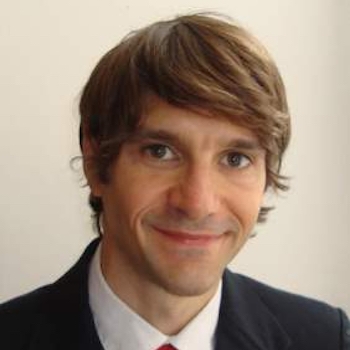
Politics
2016 and the Quest for America’s Soul
As wise people say, “It’s tough to make predictions, especially about the future.” This seems particularly good advice when we think about the outcome of the 2016 US presidential election, even now that we know that Hillary Clinton and Donald Trump are – respectively – the Democratic and Republican Party candidates. “Democalypse 2016” stands out indeed as an unusual election. As remarked by President Barack Obama at the Democratic National Convention in Philadelphia, “People outside of the United States do not understand what’s going on in this election.” Given the power and influence that American presidents are in a position to exercise – not only within the United States, but also on a global level – it seems particularly important to try to figure out, at least in part, “what’s going on in this election.”
There are in fact a number of points – some encouraging and some dismaying, depending on the point of view – that we can observe and debate. On the Republican camp, we can note that, to the embarrassment of the party’s establishment, Donald Trump has crushed his opponents in the Republican race for the nomination. As far as the Democrats are concerned, Hillary Clinton’s has been effectively – and surprisingly – challenged by Bernie Sanders. In the event Sanders failed to clinch the nomination. Yet he has demonstrated a remarkable capability to make life hard for such a Democratic Party heavyweight as Clinton, and his effort has had a major impact on both the race and the party platform.
The unexpected success of outsiders such as Trump and Sanders suggests a major wave of change in American politics, and we can try to explain this trend by adopting a number of different perspectives. One way to make sense of it is to try to see the phenomenon within the broader frame of current Western politics. Trump has been compared to Italy’s Silvio Berlusconi. He has sometimes been alarmingly described, even by conservative commentators, as a proto-fascist.
More to the point, Trump’s popularity seems to reflect a disturbing surge of nationalist – and predominantly right-wing – demagoguery and xenophobia on both sides of the Atlantic. Sanders seems keen to describe himself as a Scandinavian-style social democrat. Although a few years ago such a position would have been judged too radical for US politics, it turns out that in today’s America the word “socialist” is becoming less of a taboo, especially for the younger generations. In fact, as argued by superstar economist Thomas Piketty, the surprising support that Sanders has obtained among America’s young electors may signal that the country is ripe for a new, progressive political cycle.
These comparisons are useful and engaging, but they miss some of the elements that can help us get the whole picture. In order to understand this side of the story, we may want to pick up a copy of Special Providence, Walter Russel Mead’s seminal study of US foreign policy. In his compelling analysis, Mead suggests a close connection between America’s competing political traditions and the role of the US in the world. According to Mead, the American worldview can be divided into four schools of thought. A first group, inspired by Alexander Hamilton – one of the Founding Fathers and America’s first Secretary of the Treasury – maintains that America’s priority is integration into the global economy on favorable terms. The key to success, the Hamiltonians say, is a close partnership between a strong government and Big Business. In contrast to the Hamiltonians, a second group, inspired by Thomas Jefferson – another prominent Founding Father and the third president of the United States – argues that America should focus on perfecting democratic institutions at home. According to the Jeffersonian school of thought, Americans should beware of Big Business and should not be involved in dangerous foreign adventures. A third group, drawing inspiration from Woodrow Wilson – who served as president during the First World War and famously articulated a very influential vision of a US-led liberal world order – believes that the United States has both a moral obligation and a national interest in actively spreading democracy and American values on a global scale. Finally, a great may Americans share a worldview inspired by the political experience of Andrew Jackson – a highly successful XIX century politician who won the presidency in 1828. Jackson famously challenged the elitist trend that characterized the early workings of the American political system but his success come along with a controversial inclination toward intolerance and recklessness. According to the Jacksonian worldview, Americans should not be involved in foreign affairs, but when foreigners threaten the US, the nation must respond with devastating force.
Let’s try to see the last two presidencies through the lenses provided by Mead. We can observe that, largely as a consequence of 9/11, during the presidency of George W. Bush the US political scene came to be dominated by Wilsonians and Jacksonians. In a world of rising global challenges such as global warming, financial instability, and militant extremism based on distorted religious beliefs, the Bush combo resulted in a debilitating mix of unilateralism and militarism. By the time Bush left the White House, the US was stuck in two wars and a major financial crisis. After the excesses of the Bush era, during the presidency of Barack Obama both the Jeffersonians and the Hamiltonians have made a significant comeback. Obama’s priority has been “nation-building here at home.” The president and his staff have concentrated their efforts on restoring America’s economic standing and pushing through important domestic reforms – such as healthcare. This has come at the price of substantially scaling down America’s military and political commitments overseas. In the field of economic policy, the Obama administration has adopted bold, but not radical, plans to reform the US financial industry. In addition, Obama has actively supported major free trade negotiations.
Now, let’s review the current Republican and Democratic camps. Trump’s political message is often inconsistent, dangerously hyperbolic, and xenophobic. In his foreign policy statements Trump makes the case for an isolationist outlook at odds with America’s leading role and responsibilities in international affairs. Several times he has gone as far as showing approval for the ruling style of dictators. But his economic platform was somewhat more appealing to the middle classes than those of his Republican contenders. Although Trump is a billionaire, his message is anti-elite and populist, and in many ways it can remind us of the aggressive and successful political approach adopted by Andrew Jackson in the XIX century. Sanders, with his criticism of US military adventurism and his fervent commitment to advance the rights of the American people and punish the greed and excesses of “Corporate America,” seems to have reinterpreted the tradition inaugurated by Thomas Jefferson at the dawn of the Republic. Sanders’s message has turned out to resonate very well among young electors and left-leaning constituencies, but in the end the Democrats have preferred the mix proposed by Hillary Clinton: Wilsonianism with a strong touch of Hamiltonianism. As far as national security policy is concerned, during her quite long political career Clinton has rather consistently tended toward interventionist positions. In contrast to the pragmatic approach adopted by the Obama administration, she has made the case for an assertive and more idealistic foreign policy. Such a bold and activist stance has even won her the support of a number of neoconservative and mainstream Republican foreign policy experts. As far as the economy is concerned, Clinton has notoriously demonstrated sympathetic attitudes toward Wall Street. Such credentials have dismayed a great many liberal Democrats, although endorsements by staunch progressives such as Bernie Sanders and Elizabeth Warren should boost Clinton’s standing among the leftist camp of the Democratic Party.
According to Mead, the genius of American foreign policy consists in striking a balance among the Jeffersonian, Hamiltonian, Wilsonian, and Jacksonian schools. As a matter of fact, we may add, the constant quest for a balance among varied constituencies is a major ingredient for the success of the whole American political system. Today more than ever, we can observe that this quest for consensus is a delicate and open-ended process. On the one hand, Trump’s success on the right and Sanders’s surprising performance on the left suggest that American voters are not prepared to passively accept the dull and uninspiring conformism that often characterizes the platforms of party establishments. They also show that the Jeffersonian and Jacksonian traditions are alive and well even in a globalized and increasingly interdependent world in which the US plays – and will continue to play for the foreseeable future – a central role. The massive Jacksonian revival associated with Trump, however, signals that the US risks to become too introverted. America is a leading world power, and the price for overlooking the Hamiltonian and Wilsonian traditions may be frustration and insecurity for the US and its allies – as well as a dangerous increase in global economic and geopolitical instability. On the other hand, Clinton’s success in the Democratic race for the nomination suggests that both the Wilsonian and the Hamiltonian schools have indeed a good chance to carry the day. As these lines are written the race is open. Should a candidate with an outlook more in line with the post-WWII tradition of American internationalism such as Clinton succeed, however, it would be very risky to overlook the influence of the Jeffersonian and Jacksonian sides of America’s soul. A great many Americans turn out to feel threatened on the social, economic, and national security levels. Many of them also perceive their political system as increasingly dominated by the whims of the country’s political and economic elites and unresponsive to their needs and demands. Any sustainable plan to preserve America’s economic dynamism and the country’s preeminent standing in world affairs must acknowledge this problem and include a serious and inspiring plan to solve it.
One of the most fascinating and inspiring aspects of American democracy is its capability to engage, experiment, and innovate. Americans will soon choose their next president. One of the major challenges he or she will face may well be the challenge of finding a new balance among the different pillars of the American political tradition.

